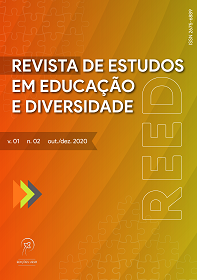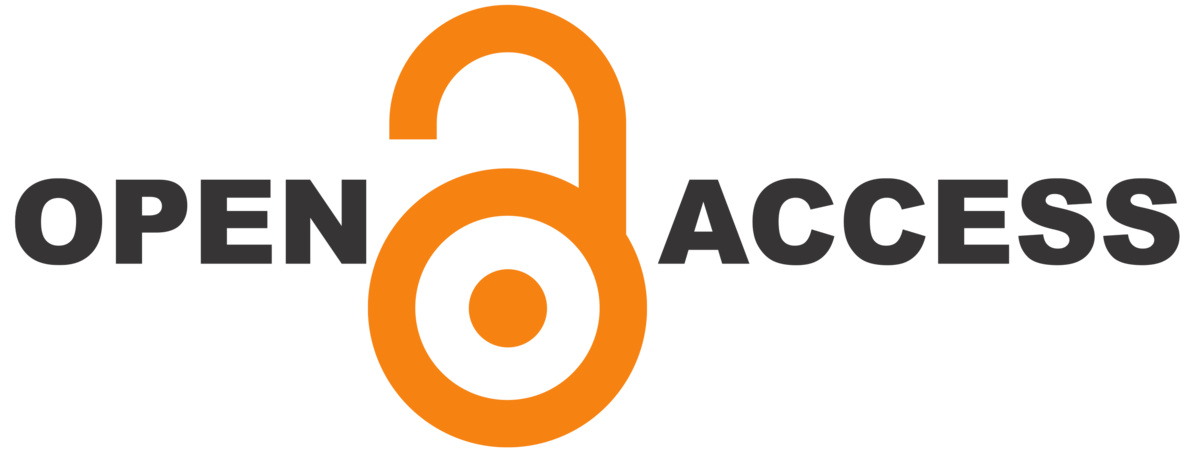TRAINING OF EDUCATORS FOR THE SOCIAL INCLUSION AND TRAINING OF UNACCOMPANIED FOREIGN MINORS IN SPAIN
DOI:
https://doi.org/10.22481/reed.v1i2.7896Keywords:
Intercultural education, Unaccompanied foreignminors, Social inclusion, Immigration, SpainAbstract
The article begins with an introduction to the Spanish context, focusing on migration, diversity, and the specific profile and needs of immigrant minors arriving alone in Spain, which raises the new professional roles of social educators working in intercultural diversity contexts. The second section of the article deals with educators' training of immigrant minors and young people, a relatively neglected and under-served field. Sections three and four are dedicated to present two training experiences we have carried out, on a four-month online course for under-age educators and a short-term face-to-face course on the same topic
Downloads
References
BERMÚDEZ, K. PRATS, G., URIBE, E. La mediación intercultural: una propuesta para la formación. Barcelona: Desemvolupament Comunitari. 2000.
CUESTA-GÓMEZ ET AL. El educador social en la enseñanza secundaria. La mediación escolar como alternativa a la resolución de conflictos. Ehquidad International Welfare Policies and Social Work Journal, 7, 145-174. 2017.
DE LA PORTILLA, A., SERRA, A., GONZÁLEZ-MONTEAGUDO, J. De lo Visible a lo Invisible: Análisis de los procesos de Inserción Laboral y las prácticas educativas con menores y jóvenes de origen inmigrante. Sevilla: Sevilla Acoge. 2007
ESCARBAJAL, A. Estudio de las respuestas socioeducativas ofrecidas a los inmigrantes en la región de Murcia y propuesta formativa para trabajadores sociales y educadores. Tesis Doctoral. Universidad de Murcia. 2009.
ETXEBERRÍA, F., MURUA, H., GARMENDIA, J., Y ARRIETA. Menores inmigrantes no acompañados (MENA) en Euskadi y Aquitania: elaboración y puesta en marcha de un Plan de Formación para Educadores/as y Responsables. Revista de Educación Social, (15), 1-28. 2012.
DE-JUANAS, A., MELENDRO, M. Práctica profesional y formación del educador social en España. Interfaces Científicas – Educação, Aracaju, 3 (1), 89-102. 2014.
ESLAVA-SUANES, M., GONZÁLEZ-LÓPEZ. I. Definiendo las funciones profesionales del educador social. Aproximación competencial. Revista de Educación Social, 24, 362-370. 2017.
FERRARA, P. ET AL. The "Invisible Children": Uncertain Future of Unaccompanied Minor Migrants in Europe. European Paediatric Association Pages, 169, 331-332. 2016.
GONZÁLEZ-GONZÁLEZ, H., ÁLVAREZ-CASTILLO, J. L., FERNÁNDEZ-CAMINERO, G. Fundamentando la formación de los educadores profesionales en competencias interculturales: la toma de perspectiva. Bordón, 64, 89-107. 2012.
GUICHOT-MUÑOZ, E. FERNÁNDEZ-GAVIRA, J. GONZÁLEZ-MONTEAGUDO, J. Formación y mediación para la inclusión social. Contribuciones en investigación e intervención. Sevilla: Proyecto ArleKin / Universidad de Sevilla. 2014.
HERNÁNDEZ, M. A., Habib, M. C. Escuela, inmigración y la figura del educador social. Revista de Educación Social, 16, 1-21. 2013.
HERRERA-PASTOR, D. Un acercamiento a la situación formativa de las educadoras y educadores sociales. Revista de Educación, 353, 641-666. 2010.
IGLESIAS-ORTUÑO, E. Las competencias para el ejercicio profesional mediador. Estudio de la actualidad formativa catalana en materia de mediación. Tesis Doctoral. Universidad de Murcia. 2015.
JIMÉNEZ-HERNÁNDEZ. Las competencias interculturales en los educadores de menores. Un estudio comparado. Revista sobre la infancia y la adolescencia, 1, 45.56. 2011.
LEIVA, J. J. La formación en educación intercultural del profesorado y la comunidad educativa. Revista Electrónica de Investigación y Docencia, número monográfico, 172-192. 2012.
LLEVOT, N. Diversidad cultural e instituciones educativas en Cataluña. El mediador intercultural como nueva figura profesional. Pedagogía social: revista interuniversitaria, Nº. 9, 127-141. 2002.
LLEVOT, N. Actitud de los docentes respecto al mediador y la necesidad de formación en educación intercultural. Revista Complutense de Educación, 14 (1), 197-210. 2003.
MARTÍNEZ-USARRALDE, M. J., SAHUQUILLO-MATEO, P., GARCÍA-RAGA, L. Identidad y responsabilidades socioeducativas del mediador escolar y del mediador intercultural: hacia una clarificación de funciones. Mediaciones Sociales, 11, 47-71. 2012.
MECEA, M. Training in intercultural mediation in a multicultural university: contributions for fostering international stability. AI & Soc, 31, 393-399. 2016.
MENDOZA, K. Adolescentes y jóvenes migrantes en Bizkaia: Prácticas de vida y socialidad. Tesis Doctoral. Madrid: Universidad Autónoma de Madrid. 2017.
OCHOA-PALOMO, C., GONZÁLEZ-MONTEAGUDO, J. La mediación intercultural en España. Perspectivas biográfico-narrativas. En: ABRAHÃO, M. H. M. B.; FRISON, L. M. B.; BARREIRO, C. B. (Eds.) A nova aventura (auto)biográfica. Porto Alegre (Brasil): Editora Universitária da PUCRS, Tomo I, 191-219. 2016.
RUIZ-CORBELLA, M., MARTÍN-CUADRADO, A. La consolidación profesional del educador social: Respuesta al derecho para la ciudadanía. Perfiles Educativos, 37 (148), 12-19. 2015.
SÁNCHEZ-FERNÁNDEZ, S. et al. Los menores extranjeros no acompañados de Melilla. Análisis de su situación y propuesta de formación socioeducativa. MODULEMA. Revista Científica sobre Diversidad Cultural, 1, 121-142. 2017.
SÁNCHEZ-NUÑEZ, C. A., RAMOS, L. E. Análisis del fenómeno de los MENA en la ciudad fronteriza y multicultural de Ceuta. Elementos para la integración social y educativa. Revista Internacional de Didáctica y Organización Educativa, 2(2), 57-83. 2016.
SAVE THE CHILDREN. Evaluación Sistema de Protección Autonómicos para menores migrantes solos. Madrid: Save the Children (Documento de trabajo). 2018.
TERRÓN-CARO et al. La diversidad cultural desde la perspectiva de los educadores sociales: un estudio en los centros educativos de Andalucía. Educatio Siglo XXI, 33 (2), 141-164. 2015.
VALLÉS-HERRERO, V. Análisis y valoración de las funciones sociales de los educadores sociales en España. Tesis Doctoral. Madrid: Facultad de Educación, UNED. 2011.
Downloads
Published
How to Cite
Issue
Section
License
You are free to:
Share - copy and redistribute the material in any medium or format; Adapt - remix, transform, and build from the material for any purpose, even commercially. This license is acceptable for Free Cultural Works. The licensor cannot revoke these freedoms as long as you follow the terms of the license.
Under the following terms:
Attribution - You must appropriately give credit, provide a link to the license, and indicate if any changes have been made. You may do so in any reasonable way, but not in a way that suggests that you or your use is endorsed by the licensor.
There are no additional restrictions - You cannot apply legal terms or technological measures that legally restrict others to make any use permitted by the license.












